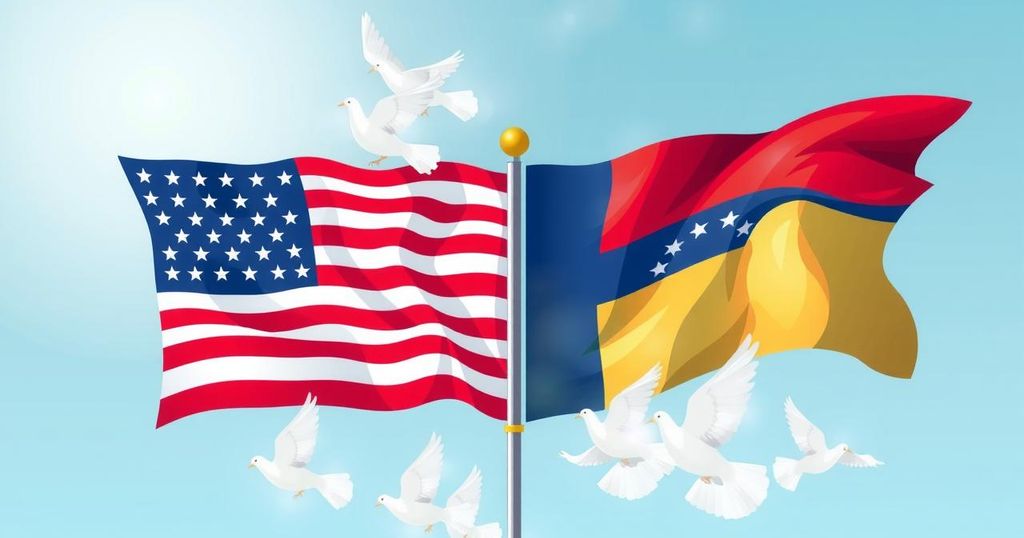Trump Administration Completes Large-Scale Prisoner Swap with Venezuela

- Trump administration completes a significant prisoner swap with Venezuela.
- About 250 Venezuelans were deported from the US back to their country.
- American Secretary of State Rubio announces ten Americans freed as part of the swap.
- Significant public backlash followed deportations of Venezuelans to El Salvador.
- Venezuelan officials acknowledged the arrival of deported citizens from Texas.
- Further movements of deported Venezuelans are anticipated soon.
US Completes Major Prisoner Swap With Venezuela
On Friday, the Trump administration finalized a significant prisoner exchange with Venezuela, achieving a long-discussed goal. Reports indicate that roughly 250 Venezuelans deported from the US, who had been incarcerated in a maximum-security facility in El Salvador, have been sent back to Venezuela. This move comes in return for the release of American hostages held by Venezuelan authorities, with Secretary of State Marco Rubio announcing that ten Americans are now “on their way to freedom” as part of the operation.
Details on Deported Venezuelans and Implications
This swap marks a notable point in US-Venezuela relations, especially considering the backdrop of earlier deportations. In March, more than 200 Venezuelans were deported under a controversial wartime authority, leading many to protest, fearing injustice, as many detainees claimed to have no criminal histories. The Americans freed are part of a broader effort by the government to respond to calls from families for action regarding wrongful detentions in Venezuela, as well as ongoing negotiations regarding political prisoners held within the country.
Venezuelan Government Responds Post-Swap
As the swap has unfolded, Venezuelan officials have confirmed that a flight from Texas brought home unspecified numbers of their citizens. Diosdado Cabello, the interior minister, hinted at potential excitement for those receiving news about the swap, saying it brings “good news for Venezuelans.” Furthermore, there are indications that this swap may not be the last, as Cabello mentioned that more movements of detainees could occur soon, suggesting that diplomatic negotiations are still very much alive and ongoing.
Future Perspectives on Diplomatic Negotiations
Meeting details between US officials and families of Americans held in Venezuela show a recognition of the stakes involved in these negotiations. Notably, this development raises questions about the future of detained Venezuelans upon their return and what this means for US foreign policy in handling crises such as wrongful detentions. Ultimately, the reciprocal nature of this deal could pave the way for clearer discussions surrounding political prisoners and the humanitarian aspects of the situation, marking a critical departure from prior tensions between the two nations.
In conclusion, the Trump administration’s recent prisoner swap with Venezuela signifies a striking move in diplomatic relations, highlighted by the release of American hostages in exchange for Venezuelans. This operation demonstrates the complexities surrounding immigration and criminal records while spotlighting the ongoing discussions about political prisoners. The unfolding situation invites further attention, as additional movements may occur in the coming days.






